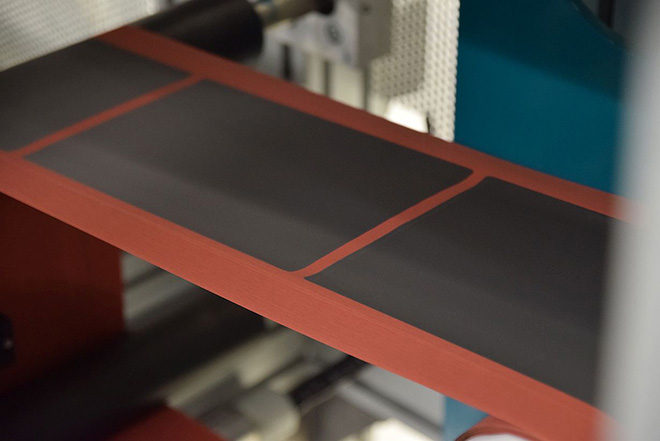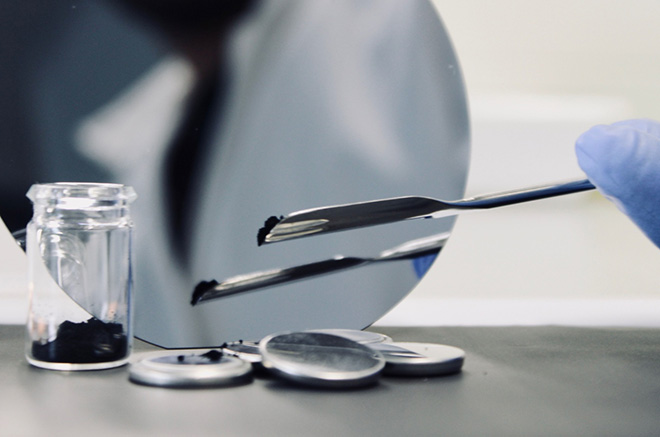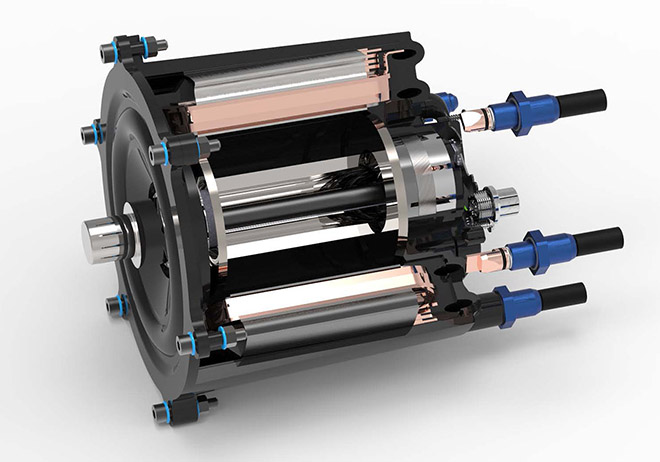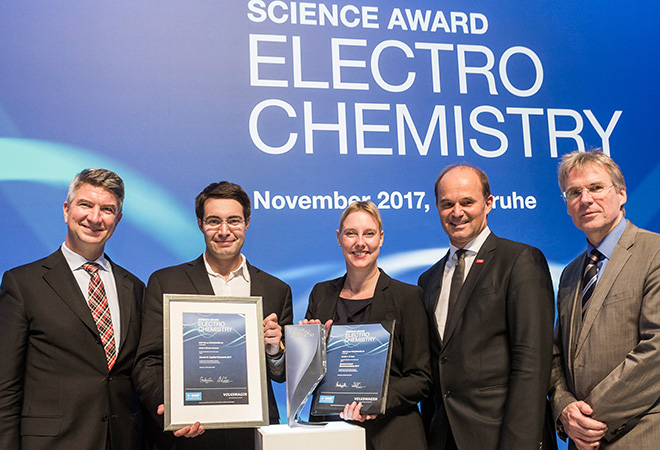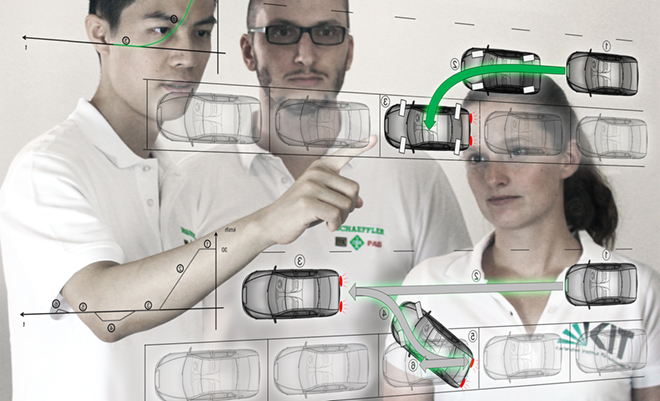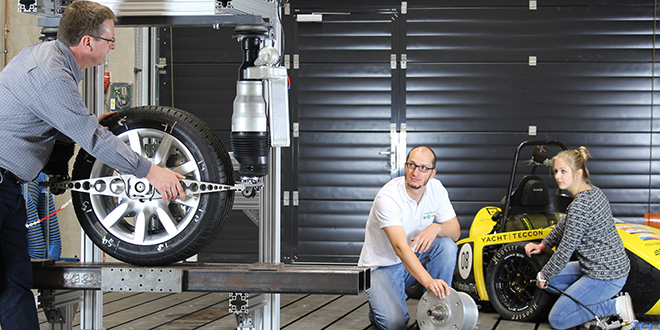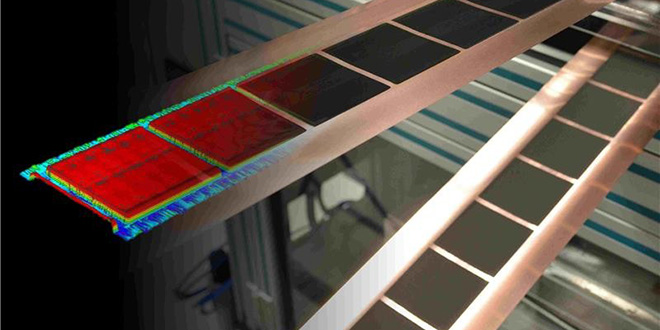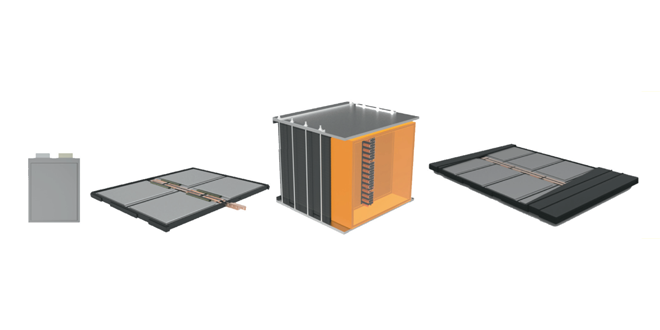A new EPIC project coordinated by Karlsruhe Institute of Technology (KIT) is aimed at accelerating the drying of electrodes for lithium-ion batteries, increasing the energy efficiency of this process and reducing production cost. KIT says innovative electrode drying management can reduce the cost of battery production and improve environmental performance. The quality of Li-ion battery… Read more »
Search Results Found For: "Karlsruhe Institute of Technology"
New anode material could lead to safer batteries with long cycle life
Researchers at the Karlsruhe Institute of Technology (KIT) and Jilin University have investigated a promising anode material for future high-performance batteries: lithium lanthanum titanate with a perovskite crystal structure (LLTO). As the team reported in Nature Communications, LLTO can improve battery energy density, power density, charging rate, safety and cycle life without requiring a particle… Read more »
BMW launches Bidirectional Charging Management research project
A consortium of companies led by the BMW Group has launched the Bidirectional Charging Management (BCM) research project to develop backfeeding power technology, which will allow vehicles to transfer energy back into the power grid or customers’ homes when plugged into a compatible charging station or wallbox. The goal is to allow EVs to operate… Read more »
New coating process allows faster production of battery electrodes
Researchers at Germany’s prestigious Karlsruhe Institute of Technology (KIT) have created a new coating process that produces electrodes for lithium-ion batteries at record speed. The researchers say the new process also improves the quality of electrodes and reduces production costs. When manufacturing battery electrodes, a thin paste of electrode material is applied to a copper… Read more »
New motor cooling solution could lead to lighter EVs
Researchers from the Fraunhofer Institute for Chemical Technology and the Karlsruhe Institute of Technology have developed a new method for cooling electric motors, which could help reduce the weight of EVs. With the new cooling method, motors can be housed in lighter-weight polymer materials, and they also benefit from increased efficiency and power density. The… Read more »
MIT professor wins VW/BASF electrochemistry award for solid-state battery research
Dr. Jennifer Rupp, Assistant Professor of Materials Science and Engineering at MIT, has won the BASF and Volkswagen Science Award Electrochemistry 2017 for her outstanding research results in the area of next-generation energy storage systems. Dr. Rupp’s research focuses on material and electrode designs for solid-state batteries. She explored a novel glassy-type lithium-ion conductor that… Read more »
The next nifty EV feature: perpendicular steering
Add another item to the list of neat tricks that cars will soon be learning: the ability to maneuver sideways in order to slip into tight parking spaces. The OmniSteer project, funded by Germany’s Ministry of Education and Research, aims to develop a vehicle with “a lateral and transverse guidance system capable of performing orthogonal,… Read more »
Assisted steering system uses individual wheel motors for more efficiency and better range
Modern automobiles are complex beasts, with numerous subsidiary systems that consume energy. In an EV, more energy consumption means reduced range, so it can be well worthwhile to study more efficient ways to power the various accessories. One of these accessory systems is assisted steering, which reduces the physical effort required for the driver to… Read more »
Scientists increase manufacturing speed of electrode foils by 3x, promising lower costs
Researchers around the world are working on improving various aspects of battery performance – capacity, charging speed, usable life. Scientists at the Karlsruhe Institute of Technology (KIT) are focusing on the speed with which they can be manufactured, which has a direct effect on costs. The researchers have increased the manufacturing speed of electrode foils… Read more »
New modular battery concept to be demonstrated at Frankfurt show
The Karlsruhe Institute of Technology (KIT) will present a unique modular battery concept for electric buses at the upcoming International Motor Show in Frankfurt. The battery system consists of flat modules that can be stacked to reach the dimensions and electric characteristics desired. The idea is that, because the size and shape of the battery… Read more »







